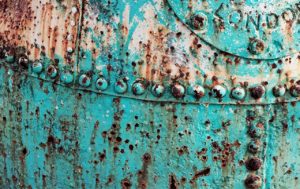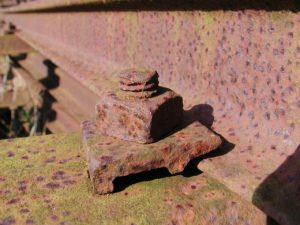Common Types of Corrosion
There are many types of corrosion that can degrade a metal. But first – what exactly is corrosion? Corrosion happens when a metal’s inherent properties start to degrade. It’s defined as the deterioration of a metal due to chemical reactions between it and the surrounding environment.
The rate of deterioration is determined by the type of metal and the environmental conditions it’s in. All metals can corrode. However, some metals deteriorate faster and more easily (like pure iron) and others have more protection (like stainless steel).
Types of Corrosion
Here, we’ll take a look at some of the most common types of corrosion.
Galvanic
This type occurs when two dissimilar metals are immersed in a corrosive or conductive solution.
There are three conditions required for galvanic corrosion to occur:
- Electrochemically dissimilar metals are present
- These metals are in electrical contact
- The metals are exposed to an electrolyte
Intergranular
This type of corrosion is a chemical or electrochemical attack on the grain boundaries of a metal. It typically occurs due to impurities in the metal, which are present in higher contents near grain boundaries. These boundaries are generally more vulnerable to corrosion than the rest of the metal.
Localized
Localized corrosion targets one area in particular of the metal structure. There are three types of localized corrosion, including pitting, crevice, and filiform corrosion.
Uniform
This is the most common type of corrosion, which attacks evenly across the surface of a metal. While uniform corrosion can cause the greatest amount of destruction, it’s also considered the most benign. This is due to its predictable nature, making it more manageable and preventable than other forms of corrosion.
Environmental Cracking
This is a corrosion process that generally results from a combination of environmental conditions affecting the metal.
Chemical, temperature and stress-related conditions can result in the following types of environmental corrosion:
- Stress Corrosion Cracking (SCC)
- Corrosion fatigue
- Hydrogen-induced cracking
- Liquid metal embrittlement
What We Have To Offer You
If you’re looking for high quality fasteners, look no further! We only carry the best. If you’d like any assistance in finding what you need, don’t hesitate to contact us. You can get in touch by calling 708-450-9301 or emailing us at sales@gcfasteners.com.

